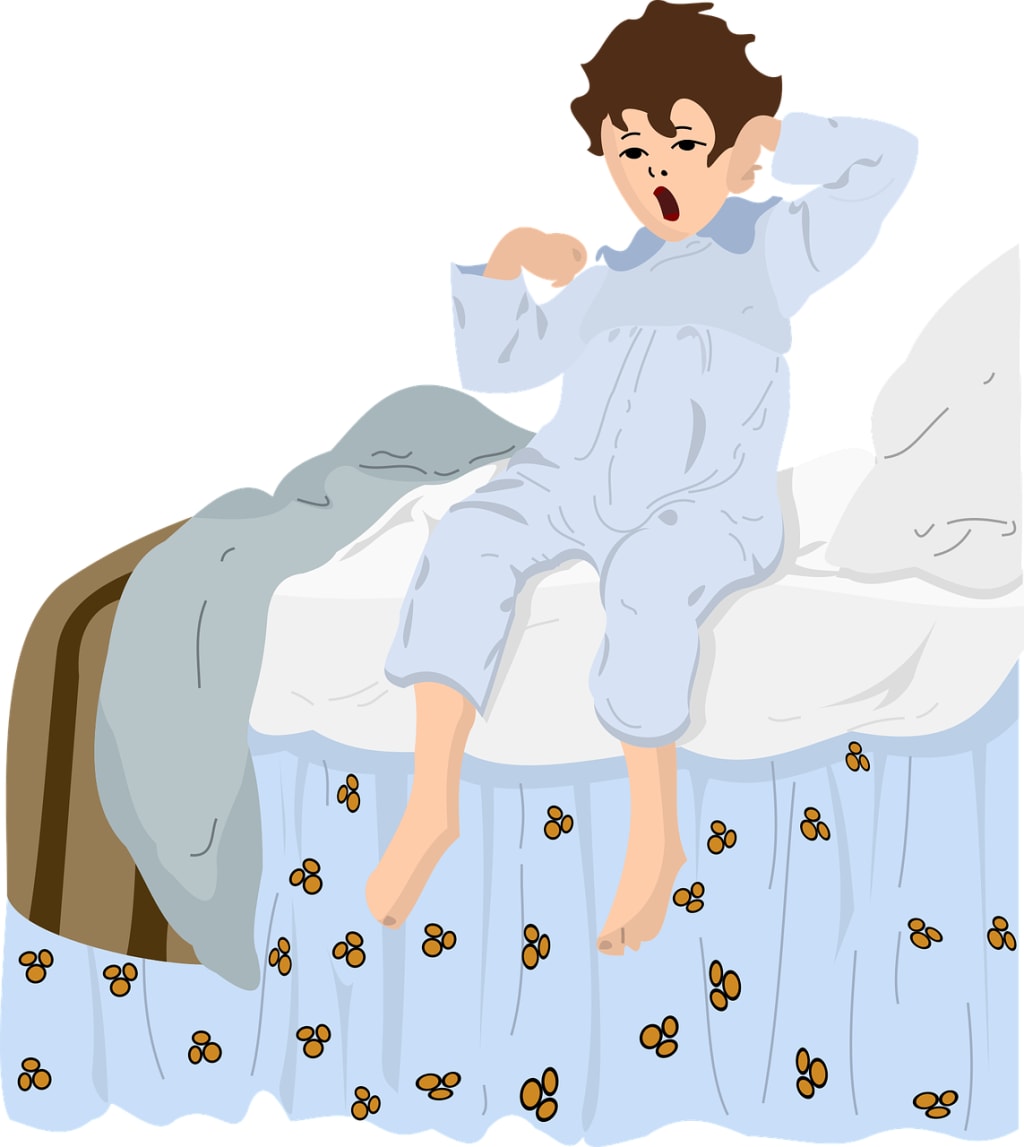The Importance of Sleep for Physical and Mental Health
When it comes to maintaining good health, there are a lot of things we need to pay attention to: eating well, exercising regularly, and managing stress, to name a few. But there's one aspect of our daily lives that's often overlooked, despite being just as important as any of the others - sleep. That's right, folks, I'm talking about the time when we close our eyes, snore a little (or a lot), and hopefully wake up feeling refreshed and ready to tackle the day. But as it turns out, sleep isn't just about feeling good in the morning - it's essential for maintaining both physical and mental health.

So, why is sleep so important? For starters, it's when our bodies do the majority of their repair and rejuvenation work. While we're snoozing, our cells are hard at work, growing and repairing damage that's been done throughout the day. This is why getting enough sleep is so crucial - without it, our bodies can't keep up with the wear and tear of daily life. And it's not just our physical health that suffers - lack of sleep has been linked to a wide range of illnesses, including obesity, diabetes, and heart disease.
But it's not just our physical health that's affected by lack of sleep - our mental health takes a hit, too. Studies have shown that people who don't get enough sleep are at a higher risk of depression, anxiety, and other mental health issues. And it's not just adults - lack of sleep in children and teenagers can lead to behavioral problems, poor academic performance, and even depression and anxiety later in life. But why is this the case? It turns out that sleep plays a critical role in cognitive function and memory - when we're well-rested, our brains are better able to process and retain information. So, if you're looking to improve your memory or boost your productivity, getting enough sleep is a good place to start.
Now, I know what you're thinking - "But I can't sleep! I have too much to do!" And I get it, we live in a fast-paced world and it can be hard to shut off our brains at the end of the day. But trust me, making time for sleep is worth it in the long run. Not only will you feel better, but you'll be better able to tackle all the tasks on your to-do list. So, let's make a pact, shall we? Let's start taking sleep seriously and make it a priority in our lives. Trust me, you won't regret it - you'll be a happier, healthier, and more productive person for it.
I. The Mental Benefits of Sleep
As I mentioned earlier, sleep doesn't just affect our physical health - it also plays a critical role in maintaining good mental health. Studies have shown that people who don't get enough sleep are at a higher risk of depression, anxiety, and other mental health issues. And it's not just adults that are affected - lack of sleep in children and teenagers can lead to behavioral problems, poor academic performance, and even depression and anxiety later in life. But why is this the case? Well, it turns out that sleep plays a critical role in cognitive function and memory.
When we're well-rested, our brains are better able to process and retain information. This is why you may find it hard to focus or remember things when you're sleep-deprived. But when you're well-rested, you'll be able to think more clearly and make better decisions. This is especially important if you're a student or have a job that requires a lot of mental focus. Getting enough sleep can also help you be more productive and efficient in your work.
In addition to cognitive function and memory, sleep also plays a critical role in regulating emotions. When we're well-rested, we're better able to handle stress and have a more positive outlook on life. But when we're sleep-deprived, we're more likely to feel anxious, irritable, and negative. This can affect our relationships, our work, and our overall well-being.
Another interesting fact is that sleep disorders such as insomnia, sleep apnea and restless leg syndrome can lead to or exacerbate mental health conditions such as depression, anxiety and bipolar disorder. This is why it's important to address any sleep-related issues you might be experiencing and consult with a medical professional if necessary.
In conclusion, sleep is essential for maintaining good mental health. Not getting enough sleep can lead to a wide range of mental health issues, including depression, anxiety, and cognitive impairment. If you want to maintain good mental health, make sure you're getting enough sleep. And remember, if you're experiencing sleep-related issues, don't hesitate to consult with a medical professional.
II. Common Sleep Problems and Solutions
It's one thing to know that sleep is important, but it's another thing entirely to actually get a good night's rest. Unfortunately, many of us struggle with sleep problems that can make it hard to fall asleep, stay asleep, or wake up feeling rested. But the good news is that there are solutions to these common sleep problems, and I'm here to share them with you.
One of the most common sleep problems is insomnia, which is the inability to fall asleep or stay asleep. There are a variety of causes of insomnia, including stress, anxiety, depression, and certain medications. But there are also a variety of solutions, including relaxation techniques such as deep breathing or meditation, cognitive-behavioral therapy, and even medication if necessary.
Another common sleep problem is sleep apnea, which is a condition where the airway becomes blocked during sleep, causing the person to wake up multiple times throughout the night. This can lead to daytime sleepiness and an increased risk of heart disease and stroke. The solution to this problem usually involves the use of a continuous positive airway pressure (CPAP) machine, which helps keep the airway open during sleep.
Restless leg syndrome (RLS) is a disorder where there is an uncomfortable sensation in the legs, which makes it hard to fall asleep. This sensation usually occurs when the person is at rest and can be relieved by moving the legs. Iron deficiency, nerve damage, pregnancy, and certain medications can contribute to the development of RLS. Some solutions that can help with this problem include taking iron supplements, medication, and doing leg exercises.
Another common sleep problem is nightmares and night terrors, which can be caused by stress, anxiety, and traumatic events. These can be treated by therapy, medications and stress management techniques.
Lastly, poor sleep hygiene, such as using electronic devices before bedtime, consuming caffeine or alcohol late at night, and having an irregular sleep
Conclusion.
Recap of the main points covered in the article
Emphasis on the importance of sleep for overall physical and mental health
Call to action for readers to prioritize their sleep and make necessary changes to improve their sleep habits.






Comments
There are no comments for this story
Be the first to respond and start the conversation.